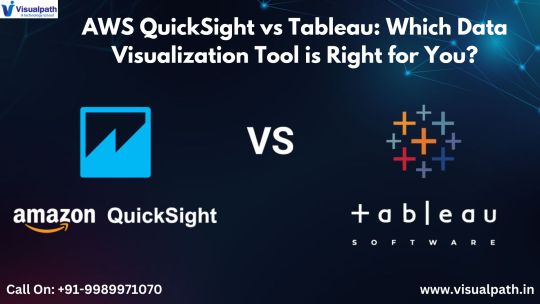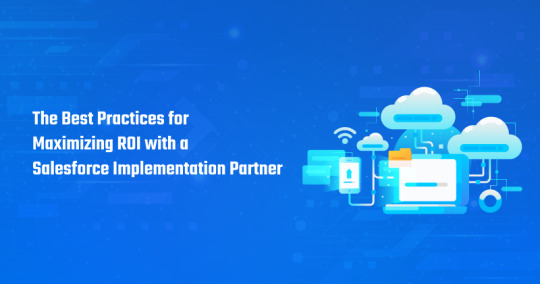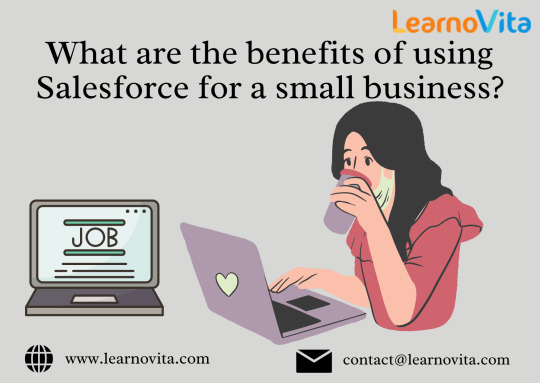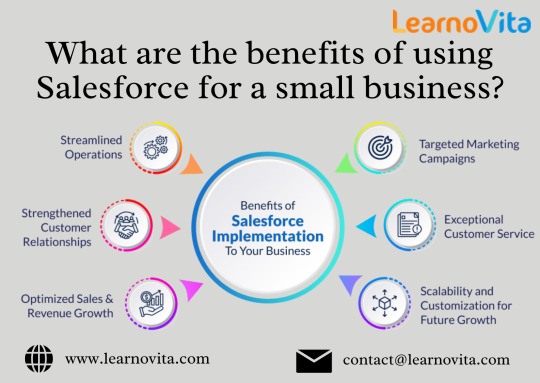#pay as you go salesforce Support
Explore tagged Tumblr posts
Text
https://www.wahinnovations.com/services/pay-as-you-go-support/
Unleashing the Power of Pay-As-You-Go Support for Salesforce Business Apps
Explore the benefits of pay-as-you-go Salesforce support services. Access flexible, cost-efficient, and expert solutions to elevate your business operations. To learn more about click here - https://wahinnovations08.medium.com/unleashing-the-power-of-pay-as-you-go-support-for-salesforce-business-apps-b603f0df8d5c
0 notes
Text
Using Azure Data Factory with Azure Synapse Analytics

Using Azure Data Factory with Azure Synapse Analytics
Introduction
Azure Data Factory (ADF) and Azure Synapse Analytics are two powerful cloud-based services from Microsoft that enable seamless data integration, transformation, and analytics at scale.
ADF serves as an ETL (Extract, Transform, Load) or ELT (Extract, Load, Transform) orchestration tool, while Azure Synapse provides a robust data warehousing and analytics platform.
By integrating ADF with Azure Synapse Analytics, businesses can build automated, scalable, and secure data pipelines that support real-time analytics, business intelligence, and machine learning workloads.
Why Use Azure Data Factory with Azure Synapse Analytics?
1. Unified Data Integration & Analytics
ADF provides a no-code/low-code environment to move and transform data before storing it in Synapse, which then enables powerful analytics and reporting.
2. Support for a Variety of Data Sources
ADF can ingest data from over 90+ native connectors, including: On-premises databases (SQL Server, Oracle, MySQL, etc.) Cloud storage (Azure Blob Storage, Amazon S3, Google Cloud Storage) APIs, Web Services, and third-party applications (SAP, Salesforce, etc.)
3. Serverless and Scalable Processing With Azure Synapse, users can choose between:
Dedicated SQL Pools (Provisioned resources for high-performance querying) Serverless SQL Pools (On-demand processing with pay-as-you-go pricing)
4. Automated Data Workflows ADF allows users to design workflows that automatically fetch, transform, and load data into Synapse without manual intervention.
5. Security & Compliance Both services provide enterprise-grade security, including: Managed Identities for authentication Role-based access control (RBAC) for data governance Data encryption using Azure Key Vault
Key Use Cases
Ingesting Data into Azure Synapse ADF serves as a powerful ingestion engine for structured, semi-structured, and unstructured data sources.
Examples include: Batch Data Loading: Move large datasets from on-prem or cloud storage into Synapse.
Incremental Data Load: Sync only new or changed data to improve efficiency.
Streaming Data Processing: Ingest real-time data from services like Azure Event Hubs or IoT Hub.
2. Data Transformation & Cleansing ADF provides two primary ways to transform data: Mapping Data Flows: A visual, code-free way to clean and transform data.
Stored Procedures & SQL Scripts in Synapse: Perform complex transformations using SQL.
3. Building ETL/ELT Pipelines ADF allows businesses to design automated workflows that: Extract data from various sources Transform data using Data Flows or SQL queries Load structured data into Synapse tables for analytics
4. Real-Time Analytics & Business Intelligence ADF can integrate with Power BI, enabling real-time dashboarding and reporting.
Synapse supports Machine Learning models for predictive analytics. How to Integrate Azure Data Factory with Azure Synapse Analytics Step 1: Create an Azure Data Factory Instance Sign in to the Azure portal and create a new Data Factory instance.
Choose the region and resource group for deployment.
Step 2: Connect ADF to Data Sources Use Linked Services to establish connections to storage accounts, databases, APIs, and SaaS applications.
Example: Connect ADF to an Azure Blob Storage account to fetch raw data.
Step 3: Create Data Pipelines in ADF Use Copy Activity to move data into Synapse tables. Configure Triggers to automate pipeline execution.
Step 4: Transform Data Before Loading Use Mapping Data Flows for complex transformations like joins, aggregations, and filtering. Alternatively, perform ELT by loading raw data into Synapse and running SQL scripts.
Step 5: Load Transformed Data into Synapse Analytics Store data in Dedicated SQL Pools or Serverless SQL Pools depending on your use case.
Step 6: Monitor & Optimize Pipelines Use ADF Monitoring to track pipeline execution and troubleshoot failures. Enable Performance Tuning in Synapse by optimizing indexes and partitions.
Best Practices for Using ADF with Azure Synapse Analytics
Use Incremental Loads for Efficiency Instead of copying entire datasets, use delta processing to transfer only new or modified records.
Leverage Watermark Columns or Change Data Capture (CDC) for incremental loads.
2. Optimize Performance in Data Flows Use Partitioning Strategies to parallelize data processing. Minimize Data Movement by filtering records at the source.
3. Secure Data Pipelines Use Managed Identity Authentication instead of hardcoded credentials. Enable Private Link to restrict data movement to the internal Azure network.
4. Automate Error Handling Implement Retry Policies in ADF pipelines for transient failures. Set up Alerts & Logging for real-time error tracking.
5. Leverage Cost Optimization Strategies Choose Serverless SQL Pools for ad-hoc querying to avoid unnecessary provisioning.
Use Data Lifecycle Policies to move old data to cheaper storage tiers. Conclusion Azure Data Factory and Azure Synapse Analytics together create a powerful, scalable, and cost-effective solution for enterprise data integration, transformation, and analytics.
ADF simplifies data movement, while Synapse offers advanced querying and analytics capabilities.
By following best practices and leveraging automation, businesses can build efficient ETL pipelines that power real-time insights and decision-making.
WEBSITE: https://www.ficusoft.in/azure-data-factory-training-in-chennai/
0 notes
Text
The Birth of Salesforce: A Revolution in CRM
Introduction
In today’s business world, managing customer relationships efficiently is essential for success. However, before Salesforce, traditional CRM systems were expensive, complex, and difficult to scale. Businesses struggled with high infrastructure costs, slow implementation, and limited accessibility, making it challenging to manage customer data effectively. For those looking to enhance their skills, Salesforce Online Training & Placement programs offer comprehensive education and job placement assistance, making it easier to master this tool and advance your career.

Salesforce was introduced in 1999 by Marc Benioff and his team to revolutionize customer relationship management. By shifting CRM to the cloud, Salesforce made it affordable, scalable, and accessible to businesses of all sizes. This innovation transformed the industry and paved the way for a new era of digital business solutions.
The Challenges of Traditional CRM
Before Salesforce, businesses relied on on-premise CRM software, which came with several limitations:
High Costs and IT Dependency
Traditional CRMs required companies to invest in expensive servers, software licenses, and IT teams for maintenance and updates. This made CRM solutions inaccessible to many small and mid-sized businesses.
Limited Accessibility
On-premise CRMs were confined to office networks, meaning that sales teams, customer service representatives, and executives couldn’t access real-time data while working remotely. This resulted in delays in decision-making and reduced efficiency.
Slow and Complicated Implementation
Deploying a traditional CRM could take months or even years, involving complex installations and customization processes. Any changes required extensive IT involvement, making the system rigid and difficult to adapt.
Scalability Challenges
As businesses grew, expanding traditional CRM systems became a costly and complicated process. Companies had to purchase additional hardware and software, making it difficult to scale operations efficiently. With the aid of Best Online Training & Placement programs, which offer comprehensive training and job placement support to anyone looking to develop their talents, it’s easier to learn this tool and advance your career.

Lack of Integration with Other Tools
Traditional CRMs struggled to integrate with marketing, sales, and customer support tools, leading to fragmented data and inefficiencies in business processes.
The Salesforce Revolution
Salesforce introduced a cloud-based, subscription-based CRM model (Software-as-a-Service or SaaS) that addressed these issues. This approach eliminated the need for expensive infrastructure, making CRM accessible to businesses of all sizes.
Cloud-Based Accessibility
Unlike traditional CRMs, Salesforce allowed businesses to access customer data anytime, anywhere, from any device with an internet connection. This improved collaboration across teams and enabled remote work.
Cost-Effective and Scalable
Salesforce eliminated the need for costly IT infrastructure, offering a pay-as-you-go model that allowed businesses to scale their CRM solutions as needed. Small startups could now afford enterprise-grade tools without massive upfront investments.
Fast Implementation and Customization
Salesforce could be deployed within weeks instead of months, allowing businesses to start using it quickly. Its drag-and-drop customization features made it easy to tailor the CRM to specific business needs without requiring extensive coding knowledge.
Seamless Integration with Other Applications
Salesforce provided integration with thousands of third-party apps through the AppExchange, allowing businesses to connect their CRM with marketing automation, sales analytics, and customer service tools effortlessly.
AI-Powered Insights and Automation
With features like Salesforce Einstein AI, businesses gained access to predictive analytics, automated workflows, and real-time reporting, helping them make data-driven decisions faster.
The Impact of Salesforce on Businesses
Since its launch, Salesforce has become the world’s leading CRM platform, empowering businesses to improve customer relationships, sales, and operational efficiency. Companies across various industries use Salesforce to:
Automate sales processes and improve lead management
Enhance customer support with AI-driven chatbots and service tools
Streamline marketing efforts through targeted campaigns
Gain deeper insights into customer behavior with real-time analytics
Conclusion
The birth of Salesforce marked a turning point in the CRM industry, making customer relationship management more accessible, efficient, and scalable. By shifting CRM to the cloud, Salesforce not only solved the problems of traditional systems but also set new industry standards for innovation and growth.
Today, Salesforce continues to evolve with AI, automation, and advanced analytics, helping businesses stay ahead in a digital-first world. Whether you're a small startup or a global enterprise, Salesforce provides the tools you need to succeed in customer relationship management.
0 notes
Text
Open-Source vs. Proprietary Manufacturing CRM Software: Pros and Cons
Manufacturers today face an ever-changing landscape of challenges and opportunities. One key tool that can make or break a manufacturing business is its manufacturing CRM software. With so many options available, how do you decide between open-source CRM software and proprietary CRM solutions?

In this article, we’ll explore the pros and cons of both, highlighting key considerations for manufacturers and introducing "hafooz," an AI-enabled CRM software designed for modern manufacturing needs.
What is Manufacturing CRM Software?
At its core, a CRM for manufacturing businesses helps manage customer data, streamline operations, and enhance sales and marketing efforts. Unlike generic CRM tools, manufacturing-focused CRMs cater specifically to industry requirements such as managing bulk orders, tracking inventory, and monitoring manufacturing KPIs like production rates and on-time delivery.
Why Manufacturers Need a CRM?
Imagine trying to track hundreds of customer interactions using spreadsheets or outdated methods. A manufacturing CRM simplifies this process by centralizing all your customer and sales data. It also:
Improves sales management by providing real-time insights.
Helps monitor key performance indicators (manufacturing KPIs).
Automates repetitive tasks, freeing up your time.
Enhances communication within teams and with customers.
Open-Source Manufacturing CRM
Open-source CRM systems are software solutions whose source code is publicly available. This allows businesses to customize the software according to their needs. Examples include SuiteCRM and Odoo.
Pros of Open-Source CRM
Customizability: You can tailor the system to meet specific manufacturing needs.
Cost-Effective: Many open-source CRMs are free to download and use, requiring you to pay only for hosting and maintenance.
Community Support: Open-source platforms often have active communities offering free resources and plugins.
Cons of Open-Source CRM
Technical Expertise Required: Customization and maintenance require skilled developers.
Hidden Costs: While the software itself may be free, costs for hosting, security, and updates can add up.
Limited Support: Unlike proprietary solutions, support might be limited to forums and community resources.
Proprietary Manufacturing CRM
Proprietary CRMs are commercial software solutions developed and maintained by a company. Popular examples include Salesforce and Zoho CRM.
Pros of Proprietary CRM
Ease of Use: These systems are often more user-friendly and require minimal setup.
Reliable Support: Dedicated customer service teams ensure smooth operation.
Advanced Features: Proprietary CRMs come with powerful tools and regular updates.
Cons of Proprietary CRM
Costly: Licensing fees and subscriptions can be expensive for small businesses.
Less Customizable: You’re limited to the features provided by the vendor.
Vendor Lock-In: Switching to a different CRM can be challenging due to data migration issues.
Key Features to Look for in CRM
When selecting the best CRM for your manufacturing business, consider the following features:
Inventory Management: Integration with production and stock systems.
Sales Forecasting: Predicting trends to optimize operations.
Mobile Access: For on-the-go management.
AI Capabilities: Tools like predictive analytics and chatbots (e.g., "Hafooz").
Manufacturing KPIs and CRM Synergy
Your CRM should help track essential manufacturing KPIs, such as:
On-Time Delivery Rates: Ensuring products reach customers as promised.
Production Efficiency: Identifying bottlenecks in your processes.
Customer Retention Rates: Keeping your customers loyal.
Importance of Sales Management
Effective sales management is the backbone of any successful manufacturing business. Manufacturing crm benefits are:
Providing a 360-degree view of your customers.
Enhancing pipeline visibility to close deals faster.
Automating repetitive tasks like follow-ups and scheduling.
Why Choose AI-Enabled CRM Like hafooz?
hafooz, an AI-enabled CRM, brings cutting-edge technology to manufacturing businesses. Here’s why it stands out:
Smart Insights: AI-driven analytics to identify trends and opportunities.
Automation: Streamlines repetitive tasks like data entry.
Scalability: Grows with your business needs.
Customization: Designed specifically for manufacturers.
Comparing Costs: Open-Source vs. Proprietary
While open-source CRMs might seem cheaper upfront, proprietary solutions often deliver better ROI through advanced features and support. Consider factors like implementation costs, training, and scalability when deciding.
Conclusion and Recommendations
Choosing between open-source and proprietary manufacturing CRM software boils down to your specific business needs and resources. If you value customization and have the technical expertise, open-source might be a better fit.
However, if ease of use, support, and advanced features are your priority, a proprietary CRM like hafooz can be a game-changer. Invest time in evaluating your options to ensure you select the best manufacturing CRM for your business.
0 notes
Text
What to Look for When Choosing an Email Marketing Campaign Tool

Email marketing remains one of the most effective channels for businesses to connect with their audience, boost engagement, and drive conversions. However, selecting the right email marketing campaign tool can be challenging, especially with the vast array of options available in the market. To ensure you make the best choice for your business needs, here are the key factors to consider when choosing an email marketing campaign tool.
1. Ease of Use and User Interface
The user experience (UX) of an email marketing tool is crucial, especially if you or your team are not highly technical. Look for a tool that offers an intuitive interface, drag-and-drop email builders, and simple navigation. A cluttered or overly complex tool can slow down your workflow and increase the learning curve for new users.
What to Look For:
Drag-and-drop email editor
Intuitive dashboard and navigation
Pre-built email templates
Minimal setup and onboarding time
2. Automation Capabilities
Automation is at the heart of modern email marketing. With automation, you can send personalized emails based on user behavior, schedule campaigns in advance, and set up drip campaigns that nurture leads over time.
What to Look For:
Automated workflows and sequences
Triggers for user actions (e.g., website visits, form submissions)
Drip campaign capabilities
Customizable automation rules and conditions
3. Segmentation and Personalization
Personalization goes beyond addressing recipients by their first name. Segmentation allows you to divide your email list into groups based on criteria like demographics, purchase history, and engagement levels. This ensures that subscribers receive content that’s relevant to them.
What to Look For:
Advanced segmentation options
Ability to personalize email content dynamically
Behavioral tracking and data-driven insights
Tools for list management and audience filtering
4. Analytics and Reporting
Without proper reporting, you won’t know if your email campaigns are succeeding. Analytics help you measure key metrics such as open rates, click-through rates, conversions, and bounce rates.
What to Look For:
Real-time performance tracking
Visual reports and data dashboards
Click maps and engagement insights
Conversion tracking and ROI analysis
5. Integration with Other Tools
Your email marketing tool should integrate with the other platforms you use, such as your CRM, e-commerce store, and website. Integration allows for smoother workflows and better data synchronization.
What to Look For:
Integrations with popular CRMs (like Salesforce, HubSpot, etc.)
Compatibility with e-commerce platforms (like Shopify, WooCommerce, etc.)
API access for custom integrations
Synchronization with analytics tools like Google Analytics
6. Email Deliverability
High deliverability rates ensure that your emails actually reach your subscribers' inboxes instead of ending up in spam. Email deliverability depends on several factors, including the tool’s IP reputation, authentication protocols, and anti-spam compliance.
What to Look For:
High email deliverability rates (ideally over 95%)
Support for SPF, DKIM, and DMARC authentication
IP address reputation management
Anti-spam compliance and CAN-SPAM/GDPR adherence
7. Customization and Branding
Brand consistency is essential for building trust with your audience. Your email marketing tool should allow you to create branded emails that reflect your company’s look and feel.
What to Look For:
Customizable email templates
Brand color, font, and logo integration
Options for custom HTML/CSS editing
Custom landing pages for campaigns
8. Cost and Pricing Model
Different email marketing tools have varying pricing structures. Some charge per user, while others charge based on the number of emails sent or the size of your subscriber list.
What to Look For:
Flexible pricing plans (monthly, annual, or pay-as-you-go)
Clear pricing transparency (no hidden fees)
Free trials or money-back guarantees
Scalability for growing businesses
9. Customer Support and Resources
No matter how intuitive a tool is, you may still encounter issues. Reliable customer support can make a huge difference when you’re facing technical difficulties or trying to set up new features.
What to Look For:
24/7 customer support (via live chat, email, or phone)
Comprehensive knowledge base and tutorials
Availability of onboarding and training support
Community forums and user groups
10. Compliance and Security
Email marketing involves handling subscriber data, so security and compliance should be top priorities. Look for tools that comply with global regulations like GDPR, CAN-SPAM, and CCPA.
What to Look For:
GDPR and CCPA compliance
Data encryption and secure storage
Two-factor authentication (2FA) for account security
Privacy policy transparency
Conclusion
Choosing the right email marketing campaign tool requires careful consideration of your business needs, technical capabilities, and budget. Prioritize features like automation, segmentation, integrations, and ease of use to ensure you get the best value from your investment. By selecting a tool that aligns with your business goals, you can create impactful email campaigns that drive engagement and revenue.
0 notes
Text
Amazon QuickSight Training Course | AWS QuickSight Online Training
AWS QuickSight vs. Tableau: Which Data Visualization Tool is Right for You?
Amazon QuickSight Training, you're likely exploring advanced business intelligence and data visualization tools to elevate your analytical capabilities. AWS QuickSight and Tableau are two leading solutions in this domain, each with unique features catering to diverse user needs. Whether you're a business looking for cost efficiency or a professional seeking robust features, choosing the right tool is crucial.
Overview of AWS QuickSight and Tableau
AWS QuickSight, Amazon's cloud-based BI solution, is designed to integrate seamlessly with other AWS services. It enables users to analyze data and share insights through interactive dashboards. On the other hand, Tableau, now part of Salesforce, is a veteran in the BI space, renowned for its user-friendly interface and extensive capabilities in data analysis.

AWS QuickSight shines with its cost-effectiveness and integration with Amazon Web Services, making it a favorite for businesses already using AWS. Tableau, however, excels in providing detailed, customizable dashboards and advanced analytics, catering to users needing more granular control.
Ease of Use
For beginners, AWS QuickSight offers a simpler, more intuitive interface, making it an excellent choice for users who prefer to avoid steep learning curves. Many users who undergo AWS QuickSight Online Training appreciate its guided learning paths and ease of implementation, especially when managing data from AWS sources. Its automated insights feature allows for faster decision-making, a key advantage for businesses with tight deadlines.
Tableau, while robust, has a steeper learning curve. Advanced users or those familiar with similar tools will find its extensive customization options invaluable. However, for new users, investing time in training is necessary to harness its full potential.
Integration Capabilities
AWS QuickSight integrates effortlessly with Amazon’s ecosystem, such as S3, Redshift, and RDS. This makes it a preferred choice for businesses already operating within the AWS framework. By enrolling in Amazon QuickSight Training, users can master these integrations, leveraging them to drive better decision-making.
Tableau, on the other hand, offers broad integration capabilities beyond cloud services, supporting various databases, third-party apps, and cloud platforms like Google Cloud and Azure. This flexibility makes it ideal for companies with heterogeneous IT infrastructures.
Scalability and Performance
AWS QuickSight boasts impressive scalability, making it a go-to option for businesses experiencing rapid growth. Its pay-per-session pricing model ensures affordability, even as user demand scales. This feature is highly valued by startups and SMBs, where cost management is crucial. QuickSight's serverless architecture means performance remains high, regardless of user volume, which is emphasized in AWS QuickSight Online Training modules.
Tableau provides excellent performance for static environments but may require additional resources for scaling, especially in enterprise setups. Tableau’s licensing can also be cost-prohibitive for smaller teams, making AWS QuickSight a more economical alternative in such scenarios.
Customization and Advanced Features
For users seeking deep customization and advanced analytics, Tableau has the edge. Its vast library of pre-built visualizations and tools like Tableau Prep for data cleaning are unmatched. However, AWS QuickSight has been catching up with features like SPICE (Super-fast, Parallel, In-memory Calculation Engine) and ML Insights. These innovations enable QuickSight to deliver insights faster and support advanced analytical needs, which are integral to any Amazon QuickSight Training curriculum.
Cost Considerations
AWS QuickSight is known for its cost-effective pricing, particularly its pay-per-session model, which eliminates the need for upfront investments. This makes it accessible to businesses of all sizes. Tableau, while offering rich features, follows a subscription-based pricing model that can be expensive, especially for large teams or enterprise setups. For organizations looking to maximize their ROI, AWS QuickSight Online Training can help users extract maximum value from this tool.
Key Use Cases
AWS QuickSight: Ideal for organizations deeply integrated with AWS, looking for scalable, cost-effective BI tools.
Tableau: Best suited for businesses requiring highly detailed analytics and those with diverse IT infrastructures.
Why Training is Essential?
For both tools, training plays a crucial role in maximizing their potential. Whether it's mastering AWS QuickSight’s seamless AWS integrations or Tableau’s intricate visualization capabilities, a structured learning path is essential. Enrolling in Amazon QuickSight Training or other specialized courses ensures users can confidently navigate features, optimize workflows, and derive actionable insights.
Conclusion
Both AWS QuickSight and Tableau have unique strengths, making them suitable for different scenarios. AWS QuickSight’s simplicity, cost-effectiveness, and integration with the AWS ecosystem make it an excellent choice for small to medium-sized businesses and startups. Tableau, with its advanced customization and broader integration capabilities, is a better fit for enterprises needing sophisticated analytics.
By enrolling in Amazon QuickSight Training or AWS QuickSight Online Training, users can develop the skills necessary to unlock the full potential of these tools. Ultimately, the choice between AWS QuickSight and Tableau depends on your specific business needs, budget, and the level of complexity required in your data visualization efforts. Both are powerful tools that can transform how businesses interact with and interpret their data, driving smarter decisions and better outcomes.
Visualpath offers AWS QuickSight Online Training for the next generation of intelligent business applications. AWS QuickSight Training in Hyderabad from industry experts and gain hands-on experience with our interactive program. Accessible globally, including in the USA, UK, Canada, Dubai, and Australia. With daily recordings and presentations available for later review. To book a free demo session, for more info, call +91-9989971070.
Key Points: AWS, Amazon S3, Amazon Redshift, Amazon RDS, Amazon Athena, AWS Glue, Amazon DynamoDB, AWS IoT Analytics, ETL Tools.
Attend Free Demo
Call Now: +91-9989971070
Whatsapp: https://www.whatsapp.com/catalog/919989971070
Visit our Blog: https://visualpathblogs.com/
Visit: https://www.visualpath.in/online-amazon-quicksight-training.html
#Amazon QuickSight Training#AWS QuickSight Online Training#Amazon QuickSight Course Online#AWS QuickSight Training in Hyderabad#Amazon QuickSight Training Course#AWS QuickSight Training
0 notes
Text
Major Contenders in the Cloud Computing Sphere
In recent years, cloud computing has revolutionized how businesses operate, enabling them to enhance efficiency and scalability. As this sector grows, several companies have emerged as key players, each offering unique services and capabilities. In this article, we’ll delve into the main contenders in the cloud computing arena and highlight what sets them apart from the competition.
If you want to advance your career at the Cloud Computing Course in Coimbatore, you need to take a systematic approach and join up for a course that best suits your interests and will greatly expand your learning path.

1. Amazon Web Services (AWS)
As a trailblazer in the cloud domain, AWS has been delivering cloud solutions since 2006. It boasts an extensive suite of services, from computing power to storage and machine learning. Its flexible pay-as-you-go model has attracted a wide range of customers, from startups to large enterprises. AWS’s global footprint and strong security measures make it a favored choice for many organizations.
2. Microsoft Azure
Since its inception in 2010, Microsoft Azure has rapidly climbed the ranks in the cloud industry. Its seamless integration with Microsoft products like Office 365 and Dynamics makes it an appealing option for companies already using these tools. Azure’s hybrid cloud capabilities enable businesses to blend on-premises and cloud resources, offering a flexible approach to cloud adoption.
3. Google Cloud Platform (GCP)
Google Cloud Platform stands out for its prowess in data analytics and machine learning. Leveraging Google's advanced AI technology, GCP provides powerful tools for businesses seeking to optimize their data usage. With an intuitive interface and competitive pricing, it is especially attractive to organizations focused on innovation and data-centric strategies.
4. IBM Cloud
IBM Cloud offers a combination of platform as a service (PaaS) and infrastructure as a service (IaaS), catering to a diverse range of needs. Known for its strong security and compliance features, IBM Cloud is particularly favored by businesses in regulated sectors. Its commitment to hybrid solutions, bolstered by the acquisition of Red Hat, enhances its appeal in the cloud market.
For those looking to excel in Cloud computing, Cloud Computing Online Course is highly suggested. Look for classes that align with your preferred programming language and learning approach.

5. Oracle Cloud
Specializing in database management and enterprise applications, Oracle Cloud delivers robust solutions tailored for large organizations. Its offerings are designed to support critical business operations, including enterprise resource planning (ERP) and customer relationship management (CRM), making it a solid choice for enterprises seeking comprehensive cloud solutions.
6. Alibaba Cloud
As the preeminent cloud service provider in Asia, Alibaba Cloud has made significant strides on the global stage. It offers a diverse range of services, including elastic computing and big data processing. With a strong foothold in China, Alibaba Cloud is an attractive option for businesses aiming to expand into Asian markets.
7. Salesforce
While primarily recognized as a leader in customer relationship management (CRM), Salesforce has also made notable advancements in the cloud sector. The company offers cloud-based applications that integrate sales, marketing, and customer service, positioning itself as a key player in the software as a service (SaaS) market.
Conclusion
The cloud computing landscape is vibrant and rapidly evolving, with numerous players competing for dominance. Each provider offers distinct features and services tailored to meet various business requirements. As more organizations transition to the cloud, understanding these key players and their strengths will be vital for making strategic decisions. Choosing the right cloud provider can profoundly influence a business's success in today's digital landscape.
0 notes
Text
Understanding Cloud-Based Software as a Service: Transforming Business Operations
Understanding Cloud-Based Software as a Service: Transforming Business Operations

In today's fast-paced digital landscape, businesses are constantly seeking innovative solutions to stay ahead of the competition. One of the most transformative technologies shaping the modern business environment is Cloud-Based Software as a Service (SaaS). This model has revolutionized how companies operate, offering flexibility, scalability, and efficiency that traditional software models cannot match.
What is Cloud-Based Software as a Service?
Cloud-Based Software as a Service (SaaS) is a cloud computing model that delivers software applications over the internet. Unlike traditional software that requires installation on local machines or servers, SaaS solutions are hosted on remote servers and accessed via a web browser. This approach eliminates the need for extensive hardware and software installations, making it a cost-effective and scalable option for businesses of all sizes.
Key Benefits of SaaS
The rise of SaaS applications has brought numerous benefits to organizations:
Cost Efficiency: SaaS eliminates the need for large upfront investments in hardware and software. Instead, businesses pay a subscription fee, which often includes maintenance, updates, and support. This pay-as-you-go model reduces capital expenditure and allows companies to allocate resources more effectively.
Scalability: One of the most significant advantages of SaaS is its scalability. Businesses can easily scale their SaaS solutions up or down based on their needs. Whether it's adding more users or increasing storage capacity, SaaS applications offer flexibility to accommodate changing business requirements.
Accessibility: SaaS applications are accessible from any device with an internet connection, making them ideal for remote work and global teams. This accessibility ensures that employees can collaborate and access critical business applications from anywhere, enhancing productivity and flexibility.
Automatic Updates: SaaS providers handle all software updates and maintenance. This means businesses always have access to the latest features and security patches without having to worry about manual installations or downtime.
Enhanced Security: Leading SaaS providers invest heavily in security measures to protect their users' data. These measures include encryption, regular security audits, and compliance with industry standards. This level of security often exceeds what many businesses can achieve with in-house solutions.
Exploring SaaS Applications
SaaS applications cover a wide range of business functions, from customer relationship management (CRM) to human resources (HR) and beyond. Some popular examples of SaaS solutions include:
Customer Relationship Management (CRM): Tools like Salesforce and HubSpot help businesses manage customer interactions, track sales, and analyze data to improve customer relationships.
Project Management: Applications such as Asana and Trello facilitate project tracking, task management, and team collaboration.
Communication and Collaboration: Platforms like Slack and Microsoft Teams provide tools for real-time communication, file sharing, and team collaboration.
Accounting and Finance: Solutions like QuickBooks and Xero streamline financial management, invoicing, and reporting.
The Role of Cloud Computing in SaaS
Cloud computing is the backbone of SaaS, providing the infrastructure and resources needed to deliver software applications over the internet. Cloud computing allows SaaS providers to host their applications on scalable and flexible servers, ensuring high availability and performance.
By leveraging cloud computing, SaaS solutions can offer:
Elasticity: Cloud resources can be scaled up or down based on demand, ensuring optimal performance and cost-efficiency.
Reliability: Cloud providers often offer redundancy and backup solutions to ensure that applications remain available even in the event of hardware failures.
Global Reach: Cloud computing enables SaaS providers to deploy their applications across multiple regions, ensuring low-latency access for users around the world.
Embracing the Future with SaaS
As businesses continue to embrace digital transformation, Cloud-Based Software as a Service (SaaS) will play an increasingly crucial role in driving innovation and efficiency. With its numerous benefits, including cost savings, scalability, and accessibility, SaaS solutions are well-positioned to meet the evolving needs of modern businesses.
For those interested in exploring advanced SaaS development services, Luxury Prod offers comprehensive solutions tailored to your specific requirements. Their expertise in SaaS applications and cloud computing ensures that businesses can leverage cutting-edge technology to achieve their goals.
In conclusion, Cloud-Based Software as a Service represents a significant leap forward in how businesses approach software and technology. By understanding the benefits and capabilities of SaaS, organizations can make informed decisions that drive growth and success in an increasingly digital world.
0 notes
Text
Customer Service Outsourcing: Why E-commerce Businesses are choosing it? - Bionic

This Blog was Originally Published at:
Customer Service Outsourcing: Why E-commerce Businesses are choosing it? — Bionic
In the dynamic world of e-commerce, delivering outstanding customer service is essential for standing out. As the industry expands rapidly, many businesses are struggling to keep pace with customer demands.
Take Misa, who launched a successful online home goods store. At first, she managed customer inquiries on her own. However, as her business grew, so did the volume of emails and calls.
Misa quickly became overwhelmed, spending more time on customer service than on strategic growth. Misa’s experience is not unique. Many e-commerce businesses face similar challenges in providing effective in-house customer support.
From high costs and scalability issues to language barriers, these obstacles can be daunting. This is why more companies are turning to customer service outsourcing as a strategic solution.

Challenges Faced by E-commerce Businesses in Providing In-house Customer Service
1. High Costs:
One of the biggest challenges of in-house customer service is the cost. Hiring, training, and maintaining a dedicated team can strain budgets, especially for small to medium-sized businesses.
According to a report by Salesforce, 88% of customers say they expect a personalized experience, which often requires additional training and resources for staff. When you factor in infrastructure and overhead costs, the financial burden can be significant.
2. Scalability Issues:
E-commerce businesses often experience spikes in customer inquiries during peak seasons, such as holidays or sales events. Managing these fluctuations with an in-house team can lead to long wait times and dissatisfied customers.
According to a report by Glance, 78% of customers have stopped buying from a brand due to a bad experience, highlighting the importance of timely support. Conversely, during slower periods, companies may find themselves overstaffed, wasting valuable resources.
3. Time and Resource Constraints:
Managing ecommerce customer service can be time-consuming, diverting focus from core business activities like product development and marketing.
Providing 24/7 support, particularly for businesses operating across different time zones, can be a daunting task. A report from Zendesk indicates that 76% of customers expect to connect with a brand in real-time, which can be challenging for in-house teams to manage effectively.
4. Language and Cultural Barriers:
As e-commerce expands globally, businesses must cater to a diverse customer base with varying language and cultural needs. Providing localized support can be challenging without the right resources and expertise.

Benefits of Customer Service Outsourcing for E-commerce Businesses
Given these challenges, it’s no surprise that many e-commerce businesses are turning to outsourcing for customer service. Partnering with a reliable outsourcing provider offers several key advantages:
1. Cost Savings:
Ecommerce outsourcing can lead to significant cost reductions. By leveraging the efficiencies of an outsourcing partner, businesses can save on labor, infrastructure, and overhead expenses.
Outsourcing can help businesses avoid the high upfront costs of setting up a dedicated customer service department, allowing for a pay-as-you-go model that controls budgets effectively.
2. Improved Efficiency and Scalability:
Ecommerce outsourcing partners are often better equipped to handle fluctuations in customer inquiries. They can quickly scale their services to meet demand, ensuring prompt support during busy times.
For instance, during peak shopping seasons, outsourcing allows businesses to expand their support team without the long-term commitment of hiring full-time staff.
3. Focus on Core Business Activities:
By outsourcing customer service, businesses can free up internal resources to concentrate on their core competencies, such as product development and marketing. This allows them to leverage the expertise of their outsourcing partners effectively.
A report by HelpSquad highlights that businesses that outsource customer service can enhance productivity and improve efficiency, driving growth.
4. 24/7 Support:
Providing round-the-clock support is easier with an outsourcing partner. They can ensure customers receive help whenever needed, leading to higher satisfaction and loyalty.

5. Multilingual and Multicultural Support:
Outsourcing partners often have agents fluent in multiple languages and familiar with various cultures. This enables them to provide localized support and enhance the customer experience for a diverse audience.
As e-commerce continues to capture a larger share of retail sales, with projections indicating it could reach 41% by 2027, multilingual support becomes increasingly important.
6. Access to Advanced Technology and Expertise:
Outsourcing partners typically invest in the latest customer service tools and technologies like chatbots. By partnering with them, businesses can benefit from these advancements without making significant investments themselves.
A report from Backlinko states that retail e-commerce sales worldwide are estimated to reach $6.33 trillion in 2024, emphasizing the need for efficient customer service solutions to handle this growth.
Key Considerations When Choosing a Customer Service Outsourcing Partner
Choosing to outsource ecommerce customer service can come with many benefits for you. However, it’s essential to choose the right partner. Here are some key considerations:
1. Experience and Expertise:
Look for an outsourcing partner with a proven track record in the e-commerce industry. Ensure they can handle various customer service channels, such as phone, email, chat, and social media.
According to a report by HelpSquad, businesses should prioritize partners that specialize in e-commerce customer service to ensure they understand the unique challenges of the industry.
2. Technology and Infrastructure:
Verify that the partner has robust technology and infrastructure to support your customer service needs. Evaluate their data security measures to protect sensitive customer information.

3. Scalability:
Choose a partner that can scale their services to accommodate your business growth. Ensure they can handle peak seasons and sudden spikes in inquiries without compromising service quality.
The e-commerce outsourcing market is projected to reach multimillion USD by 2029, indicating a growing demand for scalable solutions.
4. Communication and Transparency:
Establish clear communication channels and expectations with your outsourcing partner. Regular reporting and performance monitoring are vital for maintaining transparency and accountability.
A report from Zendesk suggests that effective communication is key to successful outsourcing partnerships.
5. Cultural Fit:
Select a partner that aligns with your company culture and values. Their agents should effectively represent your brand and provide a consistent customer experience that reflects your brand’s personality. A strong cultural fit can enhance collaboration and improve overall service quality.
How Bionic Can Help in Your Customer Service Automation
Bionic specializes in designing customized AI and business models that automate repetitive customer service tasks, allowing businesses to focus on delivering exceptional experiences.
By handling routine inquiries, Bionic enhances productivity and ensures timely responses. Its reliable task management, using a human-in-the-loop approach, ensures accurate information while maintaining brand reputation.
Bionic’s scalable workflows, tailored to each business’s needs, adapt quickly to fluctuating customer inquiries during peak seasons.
Its cost-effective solutions reduce the need for extensive human labor, leading to significant savings while improving customer satisfaction scores.
Seamless integration with existing business platforms makes Bionic easy to adopt and implement.
By incorporating Bionic into your e-commerce customer service strategy, you can streamline operations, reduce costs, and enhance customer satisfaction in the competitive e-commerce landscape. Request a demo now!
Conclusion
As e-commerce grows, providing exceptional customer service has become a critical differentiator for businesses.
However, challenges like high costs and scalability issues can be overwhelming. That’s why many companies are turning to customer service outsourcing as a strategic solution.
By partnering with a reputable provider, businesses can enjoy benefits like cost savings, improved efficiency, and access to advanced technology.
When choosing an outsourcing partner, consider factors such as experience, technology, scalability, communication, and cultural fit.
By making the right choice, e-commerce businesses can focus on their core activities while delivering high-quality support to their customers.
With the right outsourcing strategy and leveraging AI for business like Bionic, businesses can survive and thrive in the competitive e-commerce landscape.
With the right outsourcing strategy, businesses can survive and thrive in the competitive e-commerce landscape.
0 notes
Text
SMEs Dependency on Advanced Solutions: A Pathway to Sustainable Growth

Small and medium-sized enterprises (SMEs) are the backbone of economies worldwide, contributing significantly to employment, innovation, and GDP. However, in today's rapidly evolving business landscape, SMEs face numerous challenges, including stiff competition, limited resources, and technological advancements. To remain competitive and sustainable, SMEs are increasingly dependent on advanced solutions that offer efficiency, scalability, and innovation. This article explores the critical role of advanced solutions in the growth and sustainability of SMEs.
1. Digital Transformation:
Digital transformation is no longer a luxury but a necessity for SMEs. Leveraging advanced digital solutions, such as cloud computing, artificial intelligence (AI), and the Internet of Things (IoT), enables SMEs to streamline operations, enhance productivity, and improve customer experiences.
Cloud Computing: Cloud solutions offer SMEs the flexibility to scale their operations without significant upfront investments in infrastructure. By moving to the cloud, SMEs can access advanced software, storage, and computing power on a pay-as-you-go basis.
Artificial Intelligence (AI): AI-driven tools can automate repetitive tasks, provide insights through data analytics, and enhance decision-making processes. For example, AI-powered chatbots improve customer service by providing instant responses to queries, while predictive analytics help businesses forecast demand and manage inventory more effectively.
Internet of Things (IoT): IoT devices can optimize various business processes, from supply chain management to asset tracking. For instance, IoT sensors in manufacturing can monitor equipment performance in real-time, reducing downtime and maintenance costs.
2. E-commerce and Online Presence:
The shift towards e-commerce has been accelerated by the global pandemic, making an online presence essential for SMEs. Advanced e-commerce platforms and digital marketing solutions allow SMEs to reach a broader audience, increase sales, and compete with larger enterprises.
E-commerce Platforms: Solutions like Shopify, WooCommerce, and BigCommerce provide SMEs with user-friendly tools to set up and manage online stores. These platforms offer integrated payment gateways, inventory management, and marketing tools.
Digital Marketing: Advanced digital marketing strategies, including search engine optimization (SEO), pay-per-click (PPC) advertising, and social media marketing, help SMEs attract and engage customers. Analytics tools enable businesses to track the effectiveness of their campaigns and optimize them for better results.
3. Customer Relationship Management (CRM):
Maintaining strong customer relationships is vital for SMEs. Advanced CRM solutions help businesses manage customer interactions, track sales, and analyze customer data to improve service and retention.
CRM Software: Platforms like Salesforce, HubSpot, and Zoho CRM provide comprehensive tools for managing customer relationships. These solutions offer features such as contact management, sales automation, and customer service support.
Personalization: CRM systems enable SMEs to personalize their marketing efforts, ensuring that customers receive relevant offers and communications based on their preferences and behavior.
4. Cybersecurity:
As SMEs adopt more advanced solutions, cybersecurity becomes a critical concern. Protecting sensitive data and ensuring business continuity in the face of cyber threats is paramount.
Advanced Security Solutions: SMEs can leverage advanced cybersecurity solutions, such as firewalls, encryption, and intrusion detection systems, to safeguard their data and systems. Regular security audits and employee training are also essential to mitigate risks.
Compliance: Adhering to data protection regulations, such as GDPR and CCPA, is crucial for maintaining customer trust and avoiding legal penalties. Advanced compliance tools help SMEs manage and document their compliance efforts.
5. Financial Management:
Efficient financial management is crucial for the sustainability of SMEs. Advanced financial solutions provide tools for accounting, budgeting, and financial planning, helping businesses maintain financial health.
Accounting Software: Solutions like QuickBooks, Xero, and FreshBooks automate accounting tasks, manage invoicing, and track expenses. These tools offer real-time financial insights, enabling better decision-making.
Financial Analytics: Advanced financial analytics tools help SMEs forecast cash flow, analyze profitability, and plan for future growth. By leveraging these insights, businesses can make informed financial decisions and ensure long-term stability.
Conclusion
The dependency of SMEs on advanced solutions is a trend that will continue to grow as technology evolves. Embracing digital transformation, e-commerce, CRM, cybersecurity, and financial management solutions can significantly enhance the competitiveness and sustainability of SMEs. By leveraging these advanced tools, SMEs can overcome challenges, seize new opportunities, and achieve sustainable growth in an increasingly digital world.
0 notes
Text
The Best Practices for Maximizing ROI with a Salesforce Implementation Partner

Before Implementation:
Define Clear Objectives: Collaborate with your partner to define the precise parameters of a successful Salesforce deployment. Are you attempting to improve a specific procedure, raise client happiness, or boost sales efficiency? Having specific goals helps to tailor the implementation to get those specific results.
Focus on Customization: Salesforce is powerful because of its flexibility. Instead of the other way around, a capable partner will understand your unique business processes and customize the platform to satisfy your needs. For this, it could be essential to customize workflows, data models, and functionalities.
Data is King: For a Salesforce implementation to be successful, clean and correct data is essential. To guarantee the accurate and seamless transfer of your current customer and sales data, collaborate with a company that specializes in data migration.
During Implementation:
User Adoption is Key: If your team isn't comfortable using Salesforce, it won't provide the expected return on investment. It is recommended to invest in comprehensive training provided by your implementation partner to ensure user competency and address any initial resistance to change.
Integration Matters: Consider integrating Salesforce with other business systems you use, such as marketing automation tools or accounting software. This creates a central store for all of your customer data and streamlines processes.
Post Implementation:
Ongoing Support: A good partner continues to exist after launch. To address any problems, offer guidance, and help you adapt the platform to your evolving company needs, seek options for on-going support.
If you choose the best Salesforce implementation partner and follow these best practices, your CRM investment will pay off in the long run.
0 notes
Text
Grow Your Small Business with Salesforce: A Practical Guide
Salesforce is no longer just a tool for large corporations; it’s a game-changer for small businesses looking to streamline operations, enhance customer relationships, and achieve growth. With its flexible solutions, automation capabilities, and powerful insights, Salesforce enables small businesses to operate efficiently and compete in a fast-paced market. This guide outlines how small businesses can leverage Salesforce for growth and success.
For those looking to enhance their skills, Salesforce Online Training & Placement programs offer comprehensive education and job placement assistance, making it easier to master this tool and advance your career.

Why Salesforce is Perfect for Small Businesses
Small businesses often juggle limited resources and increasing customer expectations. Salesforce addresses these challenges with affordable, scalable solutions that centralize data and improve customer experiences. By automating routine tasks and providing actionable insights, Salesforce allows small businesses to focus on what matters most—growth and customer satisfaction.
Key Benefits of Salesforce for Small Businesses
1. Centralized Customer Data
Salesforce provides a single platform to manage all customer information. You can track contact details, communication history, and transaction records in one place. This ensures your team always has up-to-date customer insights, leading to better service and improved customer retention.
2. Affordable and Scalable Solutions
Salesforce offers plans like Salesforce Essentials designed for small businesses. Start with basic features and scale up as your business grows. This flexibility ensures you’re only paying for what you need while giving you the tools to grow seamlessly.
3. Automate Routine Tasks
Salesforce allows you to automate time-consuming tasks. You can set up workflows for lead assignment, follow-up reminders, and data entry. This frees up your team to focus on more strategic activities, boosting productivity and efficiency.
4. Enhanced Sales and Marketing Collaboration
Salesforce connects sales and marketing teams for a unified approach. With tools for lead management, email campaigns, and ROI tracking, you can create personalized customer journeys and close deals faster. Salesforce’s built-in analytics also help you measure the effectiveness of your strategies.
5. Mobile Access for Flexibility
With the Salesforce mobile app, you can manage your business anytime, anywhere. Access customer data, respond to leads, and monitor progress while on the go. This flexibility is especially valuable for small business owners and teams working remotely. With the aid of Best Online Training & Placement programs, which offer comprehensive training and job placement support to anyone looking to develop their talents, it’s easier to learn this tool and advance your career.

6. Customization to Fit Your Needs
Salesforce is highly customizable to meet your specific business requirements. You can create dashboards, workflows, and reports tailored to your operations. Salesforce also integrates with other tools like QuickBooks, Slack, and Google Workspace, enhancing your overall productivity.
7. Exceptional Support and Resources
Salesforce provides comprehensive support and learning materials for small businesses. With Trailhead, tutorials, and live support, you can quickly onboard your team and make the most of Salesforce’s features.
Practical Steps to Get Started with Salesforce
1. Choose the Right Plan
Evaluate your needs and select a plan that fits your business goals. Salesforce Essentials is ideal for small businesses with its cost-effective features and scalability.
2. Define Your Goals
Decide what you want to achieve with Salesforce, whether it’s improving customer communication, automating tasks, or boosting sales. Clear goals will guide your implementation process.
3. Train Your Team
Ensure your team is well-versed in using Salesforce. Utilize Salesforce Trailhead for interactive training modules that cover everything from basic features to advanced tools.
4. Customize Your Platform
Set up workflows, dashboards, and integrations that match your business processes. Customizing Salesforce ensures it works seamlessly with your existing tools and meets your unique needs.
5. Integrate Your Tools
Connect Salesforce with other tools like email platforms, accounting software, and marketing apps. This integration creates a unified ecosystem that simplifies your operations.
6. Monitor and Improve
Leverage Salesforce’s reporting and analytics features to track progress and refine strategies. Regularly review your performance metrics to ensure continuous improvement.
Conclusion
Salesforce equips small businesses with the tools they need to grow, improve efficiency, and build stronger customer relationships. Its affordability, flexibility, and powerful features make it an invaluable asset for businesses aiming to thrive in a competitive market. By adopting Salesforce, small businesses can unlock their full potential and pave the way for sustainable success.
0 notes
Text
Dell Boomi AWS

Dell Boomi and AWS: A Match Made in Cloud Integration Heaven
In today’s rapidly evolving digital world, businesses constantly seek ways to streamline operations, improve efficiency, and unlock data-driven insights. This is where the powerful combination of Dell Boomi and Amazon Web Services (AWS) shines, transforming the way organizations unlock the true potential of their data and applications.
What is Dell Boomi?
Dell Boomi is a leading cloud-based integration platform and service (iPaaS). Consider it the digital glue connecting various applications, data sources, and systems—whether in the cloud or on-premises. Boomi’s intuitive, low-code interface simplifies the creation of complex integration flows, empowering enterprises to unlock data silos and automate business processes.
Why Partner Boomi with AWS?
AWS provides vast cloud computing services, offering unparalleled scalability, reliability, and global reach. When you integrate Boomi with AWS, you gain access to:
Comprehensive Cloud Services: Effortlessly connect your Boomi integrations with services like Amazon S3 (storage), Amazon EC2 (compute), Amazon RDS (databases), and many more.
Robust Data Management: Facilitate secure and efficient data movement between AWS services and other endpoints, enabling seamless data pipelines and analytics.
Scalability: Boomi’s cloud-native architecture and AWS’s elasticity allow your integrations to scale effortlessly to meet changing business demands.
Global Availability: AWS’s global footprint ensures that your Boomi integrations can support data flows and business processes worldwide.
Critical Use Cases for Dell Boomi and AWS
Hybrid Cloud Integration: This service bridges the gap between your on-premises systems and AWS cloud services, facilitating smooth data migration and seamless business processes across hybrid environments.
SaaS Application Integration: Effortlessly connect popular SaaS applications like Salesforce, NetSuite, Workday, and others to your AWS ecosystem, streamlining data flows and unlocking valuable business insights.
IoT Data Orchestration: Manage data flow from IoT devices into AWS services, enabling real-time insights, predictive analytics, and enhanced operational efficiency and decision-making.
Modern Data Warehousing: Simplify data extraction, transformation, and loading (ETL) processes into AWS Redshift or other data warehouse solutions for in-depth business intelligence.
API Development and Management: Build and expose Boomi APIs to streamline interactions between AWS services, external systems, and partner ecosystems.
Getting Started with Boomi on AWS
Dell Boomi provides multiple options for leveraging their iPaaS on AWS:
Boomi Marketplace: Discover pre-built integrations and connectors on the AWS Marketplace that accelerate your integration projects.
Boomi Molecule: A lightweight runtime engine from Boomi that can be deployed on AWS for scalable and fault-tolerant integration processes.
Boomi Pay-As-You-Go: Explore Boomi’s capabilities with a flexible consumption model, which is ideal for starting small with your integration needs.
The Future is Integrated
The partnership between Dell Boomi and AWS empowers businesses to break down data silos, automate workflows, and drive innovation through seamless cloud integration. As organizations continue their cloud journeys, Boomi and AWS will play an increasingly critical role in shaping the future of connected, data-driven enterprises.
youtube
You can find more information about Dell Boomi in this Dell Boomi Link
Conclusion:
Unogeeks is the No.1 IT Training Institute for Dell Boomi Training. Anyone Disagree? Please drop in a comment
You can check out our other latest blogs on Dell Boomi here – Dell Boomi Blogs
You can check out our Best In Class Dell Boomi Details here – Dell Boomi Training
Follow & Connect with us:
———————————-
For Training inquiries:
Call/Whatsapp: +91 73960 33555
Mail us at: [email protected]
Our Website ➜ https://unogeeks.com
Follow us:
Instagram: https://www.instagram.com/unogeeks
Facebook: https://www.facebook.com/UnogeeksSoftwareTrainingInstitute
Twitter: https://twitter.com/unogeek
0 notes
Text
Market Development Representative - Remote( USA)

Company: About us: RevenueCat makes building, analyzing, and growing mobile subscriptions easy. We launched as part of Y Combinator's summer 2018 batch and today are handling more than $2B of in-app purchases annually across thousands of apps. We are a mission driven, remote-first company that is building the standard for mobile subscription infrastructure. Top apps like VSCO, Notion, and ClassDojo count on RevenueCat to power their subscriptions at scale. Our 60 team members (and growing!) are located all over the world, from San Francisco to Madrid to Taipei. We're a close-knit, product-driven team, and we strive to live our core values: Customer Obsession, Always Be Shipping, Own It, and Balance. As RevenueCat’s first Market Development Representative, you’ll qualify potential RevenueCat customers and provide an initial touch point where you impress by: - Showcasing deep product understanding, - Answering high level questions on capabilities, technology, and unique differentiating value - Being empathetic, honest, and following up with additional answers and next steps in a timely manner. This role is a part of the Marketing team, intended to support a growing Sales org as we scale our go-to-market efforts. Core to succeeding in this role – and RevenueCat as a whole – will be an approach centered on delivering value for our users in everything you do. The ideal candidate will have the aptitude and passion to become a true product expert, and will use that expertise to surpass potential customers’ expectations in every interaction. About you: - You have 1-3 years of successful sales experience, preferably in SaaS - Current knowledge on software development, preferably in mobile - Positive and energetic phone skills, excellent listening and writing skills - A self-starter with a track record of successful, credible achievements - Proficient in the use of Salesforce and LinkedIn - Experience with platform-as-a-service, developer tooling, and the mobile space preferred - You have been an early stage startup hire, and are comfortable with ambiguity - You share our values, and are eager to help mobile subscription businesses emerge, grow, and positively impact the world - In additional to requiring native fluency in English, we’re excited to talk to candidates that have native/bilingual level of fluency in the following languages: French, German, Spanish, Portuguese, Japanese, Korean In the first month, you'll: - Spend time learning our product, personas, positioning, process, and systems - Listen to & shadow customer calls to understand our talk tracks - Pick up your first inbound requests Within the first 3 months, you'll: - Deeply understand our product, business value, and technology advantages - Pick up 50-60 inbound requests per month, and schedule multiple qualifying meetings per day - Start proactively reaching out to Product Qualified users that – based on their in-product behaviors – could benefit from a sales touch - Share market & product feedback, process suggestions, and insights Within the first 6 months, you'll: - Help define a repeatable and refined playbook that enables you and future team members to exceed targets - Work with the team to ensure everyone is operating efficiently - Raise your hand for more responsibility Within the first 12 months, you'll: - Start prepping for your next role as account executive, account manager, or sales engineer What we offer: - On-target earnings (OTE) is $120,000 with 70/30 base and variable pay structure regardless of your location - Competitive equity in a fast-growing, Series B startup backed by top tier investors including Y Combinator - 10 year window to exercise vested equity options - Fully remote work environment that promotes autonomy and flexibility - Suggested 4 to 5 weeks time off to recharge and focus on mental, physical, and emotional health - $2,000 USD to build your personal workspace - $1,000 USD annual stipend for your continuous learning and growth APPLY ON THE COMPANY WEBSITE To get free remote job alerts, please join our telegram channel “Global Job Alerts” or follow us on Twitter for latest job updates. Disclaimer: - This job opening is available on the respective company website as of 8thJuly 2023. The job openings may get expired by the time you check the post. - Candidates are requested to study and verify all the job details before applying and contact the respective company representative in case they have any queries. - The owner of this site has provided all the available information regarding the location of the job i.e. work from anywhere, work from home, fully remote, remote, etc. However, if you would like to have any clarification regarding the location of the job or have any further queries or doubts; please contact the respective company representative. Viewers are advised to do full requisite enquiries regarding job location before applying for each job. - Authentic companies never ask for payments for any job-related processes. Please carry out financial transactions (if any) at your own risk. - All the information and logos are taken from the respective company website. Read the full article
0 notes
Text
How Can Salesforce Managed Services Unlock Cost-Efficiency for Salesforce Users?
Manual work processes, absence of personalization, and siloed information design of conventional CRMs brief organizations to search for cutting edge CRM arrangements. Businesses rely on platforms like Salesforce to overcome these obstacles and maximize operational efficiency. Businesses struggle to independently deploy and manage Salesforce solutions, despite the ease with which they can customize and scale them. High initial costs, a lack of in-house expertise, and the difficulty of predicting ROI after adoption are the biggest obstacles for businesses.
Salesforce managed service providers are permitting Salesforce and other stage clients to beat routine obstacles of in-house arrangement and become more proficient with their Salesforce venture.
Salesforce Managed Services: What Are They?
A team needs external support through Salesforce Managed Services to ensure that their Salesforce projects run smoothly. Salesforce consulting firms form partnerships with businesses using the managed service model to fill skill, resource, and knowledge gaps.
Salesforce managed services can assist you with application improvement, organization, support, and different exercises. These specialists can keep your Salesforce applications up to date, optimized, and error-free by working proactively and taking real-time notice of issues.
Different Types of Managed Application Services To help you better understand what Salesforce Managed Services are, we have grouped different managed services into three main categories.
Operating: This encompasses all activities related to deployment, testing, validation, sandbox management, technical consulting, license management, and cost optimization.
Optimization: These Salesforce Oversaw Administrations (SMS) are utilized for fixing refreshes, adding redesigns, reviews, permit improvement, coordination, customization, and different necessities.
Maintenance: In addition, managed service experts assist you with break/fix issues, answer business queries, and carry out routine Salesforce application administration tasks.
How Can Salesforce Managed Services Unlock Cost-Efficiency for Salesforce Users?
By utilizing the help of a salesforce managed service providers, associations can relieve cost-based difficulties and streamline their Salesforce speculation. salesforce managed services will undoubtedly assist you in optimizing operational expenditure and bridging skill gaps in an on-demand manner if you are looking to reduce costs while ensuring that your projects are deployed promptly.
Here are few ways how Salesforce Managed Services Unlock Cost-Efficiency for Salesforce Users
Offers a Cost-Effective Pay-As-You-Go Model:
There is a high demand for skilled professionals and a low supply, making it difficult for businesses to meet their immediate hiring needs. They invest more than adequate energy and interest in cooperating with counselling firms so they can enlist experts according to their range of abilities and need. However, since these experts are recruited on a full-time premise, most independent companies don't track down this a productive endeavour. Salesforce Managed Service Providers provide businesses with a pay-as-you-go model in which they only pay for the services they use, significantly reducing operational expenses.
Makes Assets Accessible Under One Rooftop:
Organizations with Salesforce don't keep up with in-house assets (other than an overseer) since it requires wise venture. But if you don't have professionals with a wide range of skills on board, you might need them right away, which might be hard to arrange. You won't have to worry about collaboration, onboarding, partnerships, or anything else because Salesforce Managed Services gives you access to skilled experts under one roof. You can cut costs without sacrificing Salesforce support because resources are paid by the hour.
Increases Opportunities for Innovation:
The day-to-day responsibilities of in-house experts limit opportunities for innovation. With Salesforce-managed services, professionals have more experience, knowledge, and availability, so there is more room for innovation. They can identify opportunities and prepare a strategy for hassle-free implementation because they are constantly learning and aware of the most recent releases.
Offers Greater Contract Flexibility :
Salesforce Management services offer greater contract flexibility distinguishes it from in-house Salesforce, where professionals have limited time, knowledge, and skillsets. Users of Salesforce can manage projects in accordance with shifting requirements thanks to managed services. While remaining in an existing contract, service support can be upgraded or decreased. This adaptability permits organizations to continuous help as opposed to forsaking it by and large.
Salesforce managed service provider is the way to cost-effectiveness for Salesforce clients. It permits clients to profit of progressing support without undermining their financial plan. Additionally, it shields them from difficulties during onboarding and hiring.
0 notes
Text
What drives Brand Loyalty?
Brand loyalty is the holy grail of any business. It is what every company strives for, but it is not easy to achieve.
Brand loyalty can be defined as the customer's willingness to repeatedly buy from a particular brand, even when there are other similar options available in the market.
“It’s well known that brand loyalty and corporate profits go hand in hand. In fact, early studies on the topic suggested that increasing customer retention rates by just 5% would increase profits by a minimum of 25%” - Wunderkind & Retail Dive Report [2022]
So, what drives brand loyalty?
Several factors contribute to it, and here are the 7 most important ones that influence more:
1. Quality: The quality of the product or service is crucial in driving brand loyalty. If customers are satisfied with the quality of a product or service, they are more likely to become loyal to the brand.
2. Customer service: Excellent customer service can go a long way in building brand loyalty. When customers feel valued and appreciated, they are more likely to become loyal to the brand.
“Nothing helps brand reputation and loyalty more than a great customer experience and nothing ruins it like a bad one” – Data Axle
3. Consistency: Consistency is key when it comes to building brand loyalty. Customers want to know that they can rely on a brand to consistently deliver high-quality products and services.
Salesforce found that brands delivering a consistent experience win more loyalty from 83% of customers.
4. Emotional connection: Brands that can connect with customers on an emotional level are more likely to build brand loyalty. When customers feel a personal connection to a brand, they are more likely to become loyal.
“Find the human connection to win hearts, minds, and loyalty. Our research shows a genuine, human connection has more impact on customer spend and loyalty than operational efficiency” – Qualtrics [Global Consumer Trends 2023, US]
5. Trust: Trust is an essential factor in building brand loyalty. Customers need to trust that a brand will deliver on its promises and that it has its best interests at heart.
6. Brand identity: A strong brand identity can help build brand loyalty. When customers can easily identify with a brand's values and personality, they are more likely to become loyal.
“UGC [user generated content] is a powerful way to increase trust among your prospects and drive conversions through authenticity and transparency, which are at the core of a successful business's brand identity and culture” – MarketingProfs
7. Innovation: Brands that continuously innovate and improve their products and services are more likely to build brand loyalty. Customers appreciate brands that stay ahead of the curve and offer new and exciting products and services.
“Get closer to customers to differentiate and win in a down market. History has shown that in tough times, innovation pays off. The companies that win over the next 12 months will be those who innovate based on a deep understanding of customers’ ever-changing needs” – Qualtrics [Global Consumer Trends 2023, US]
Pro-Tip: Putting in place a loyalty program is a booster tactic that can be used in business and marketing plans.
Overall, the aforementioned factors play a crucial role to drive brand loyalty.
By focusing on quality, customer service, consistency, emotional connection, trust, brand identity, and innovation, brands can create a loyal customer base that will continue to support them for years to come.
Here's related information that you may find helpful – Ways of Attracting and Retaining Customers [Top 7 Proven Ways]
0 notes